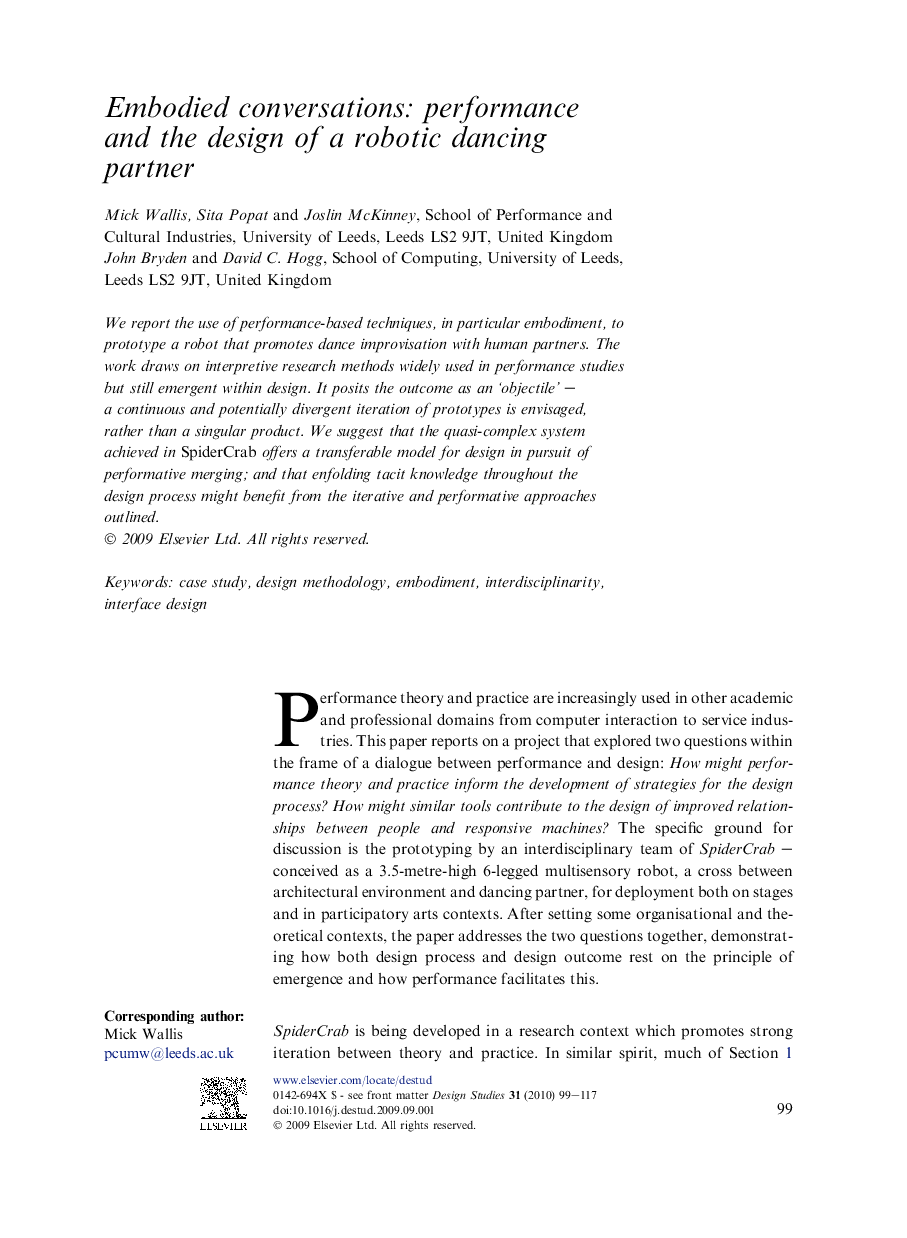| Article ID | Journal | Published Year | Pages | File Type |
|---|---|---|---|---|
| 261604 | Design Studies | 2010 | 19 Pages |
Abstract
We report the use of performance-based techniques, in particular embodiment, to prototype a robot that promotes dance improvisation with human partners. The work draws on interpretive research methods widely used in performance studies but still emergent within design. It posits the outcome as an ‘objectile’ – a continuous and potentially divergent iteration of prototypes is envisaged, rather than a singular product. We suggest that the quasi-complex system achieved in SpiderCrab offers a transferable model for design in pursuit of performative merging; and that enfolding tacit knowledge throughout the design process might benefit from the iterative and performative approaches outlined.
Related Topics
Physical Sciences and Engineering
Computer Science
Computer Graphics and Computer-Aided Design
Authors
Mick Wallis, Sita Popat, Joslin McKinney, John Bryden, David C. Hogg,
